Taxes on air tickets and the import of aircraft parts will be slashed if a State-backed policy is adopted in efforts to make travel cheaper and local airlines competitive.
The National Aviation Policy is seeking a review of the value added tax, import duty, import declaration fees and the railway development levy.
Both domestic and international air fares in Kenya remain steep, with the taxes and levies accounting for up to 24 percent, making local carriers like Kenya Airways uncompetitive in the cut throat market.
“As an example, the materials needed for maintenance, repair and overhaul are subject to not only import tax, up to 25 percent, value added tax but also import declaration fees 3.5 percent and the railway development levy,” states the new aviation policy under Transport ministry.
“As a result, the added cost associated with import, which is later transferred to the final customer, hampers the country’s competitiveness in the business, positioning Kenya in the expensive range of maintenance repairs and overhauls in the region.”
Air operators pass on some of their costs to passengers, with taxes and levies accounting for up to 24 percent of air fares, according to a survey by the East African Business Council (EABC).
An early-booked domestic flight from Nairobi to Kisumu on budget carrier Jambojet costs about Sh7,100 with fees and taxes taking up Sh1,500 of the ticket, or a 21 percent.
Passengers pay Sh600 as a domestic departure fee, while regional and international departure fees are higher at Sh6,467 ($50) each.
Kenya, however, spares air passengers from other taxes such as transfer and arrival taxes.
Aviation charges, however, differ from taxes in that they are levied specifically applied to recover the costs of providing facilities and services to civil aviation as defined by the International Civil Aviation Organisation (ICAO).
Players in Kenya’s aviation sector face multiple taxes, including air passenger service charge (APSC), the air navigation service charge (ANSC), income tax and the Kenya Pipeline Company (KPC) fuel levy.
The new policy document suggests that part of the tax burden on the aviation sector has been used to subsidise alternative and rival transporters such as railway.
The lower taxes will limit the transfer of money outside the civil aviation system, boosting the cash flow for airlines and giving them more resources for investment.
Kenya Airways (KQ)has previously been cited as having the most expensive ticket on some routes among airlines operating in Africa, charging more on average than carriers such as Ethiopian Airlines, South African Airways and Air France.
The African Competition Forum (ACF)—a grouping of competition authorities in 24 countries on the continent—said the national carrier risked losing market share to cheaper rivals like Ethiopian Airlines and new entrants including Uganda Airlines.
The airline had the highest average passenger price per kilometre (APPK) for all its domestic, regional and international routes.
KQ had higher air fares on most routes where it faced competition, although there were fewer instances where rivals charged more.
The proposed cuts are in line with the ICAO, which recommends the significant reductions in taxes as an incentive to lift demand for air travel.
ICAO defines aviation taxes as levies used to raise State revenues applied for non-aviation purposes.
“Such annual tax burden potentially affects not only selected sectors but air travel competitiveness as a whole. Moreover, the Kenyan civil aviation system is forced to fund, in some instances, the cost of providing facilities and services for alternative modes of transportation such as trains through the railway development levy (RDL).
The government says it is also seeking measures to ensure Kenyan designated airlines are not subjected to double taxation in addition to ending excessive taxation on the industry.
Airlines account for other levies outside of custom duties, including landing and parking charges, aircraft handling charges, boarding bridge charges and en-routes charges.









